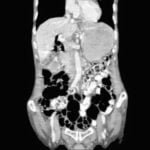Understanding Your Surgical Care Team: Who’s Involved in Your Procedure.
Contributed by
Dr. Ankita Dhir Bhasin, MD
Undergoing surgery, even a minor one, can be stressful. The anxiety surrounding the process and the outcome can be overwhelming. While you may already know your surgeon from consultations, there are many other healthcare professionals involved in your care during surgery. Meeting unfamiliar faces without knowing their roles can add to this anxiety
In this article, we’ll explain the roles of each member of your surgical team, helping you feel more prepared for your hospital stay. The team includes your surgeon, anaesthetist, scrub nurses, theatre technicians, nursing staff, and healthcare assistants. The success of your surgery depends on the coordinated efforts of these professionals, each with distinct responsibilities.

The Surgeon / Primary Clinician
Before the surgery, you meet your surgeon, a certified doctor,who is responsible for overseeing your overall treatment plan. They are your primary point of contact regarding your medical issues. Surgeons may work alone or with a team, which may include trainees or other surgeons.
Your surgeon will decide if surgery is needed, plan the procedure, and manage your post-operative care, including your discharge and follow-up. If complications arise or if other specialists are needed, your surgeon will consult with them.
The Anaesthetist / Anesthesiologist
An anaesthetist is a doctor trained in giving anaesthesia to keep you safe and comfortable during surgery. You may meet them a few weeks before surgery in the pre-operative clinic, the day before, or on the day of surgery. An anaesthetist is responsible for planning and administering the appropriate type of anaesthesia (local, regional, or general) and monitoring your vital signs throughout the surgery. They assess your medical history and may plan the type of anaesthesia for your procedure. They are also responsible for managing post-surgery pain, and emergency care of sick patients
The Operating Department Practitioner (ODP) / Theatre Technician
Operating Department Practitioners (ODPs) or theatre technicians are trained in preparing the operating room and handling specialized equipments including anaesthetia machines, ventilators, some surgical equipments, vascular access devices, and devices that safely secure the patient’s airway during anaesthesia. They assist anaesthetists in providing safe anaesthesia to the patients and also support and monitor the patients in the recovery room.
Scrub Nurses / Surgical Nurses
Scrub nurses work directly alongside the surgeon in the operating room. They ensure that all instruments, sponges, and tools are accounted for and properly handled. They play a critical role in , preventing infection and ensuring the smooth conduct of the procedure by being the surgeon’s primary assistant during the operation. They assist the surgeon during the procedure by passing instruments, performing counts of the instruments, helping with dressings, and coordinating with other members of the team.
Recovery Room Nurses (Post-Anaesthesia Care Unit Nurses)
After surgery, you are moved to the recovery room or Post-Anaesthesia Care Unit (PACU), where the recovery nurses monitor your immediate postoperative condition. They ensure that you safely wake up from anaesthesia, check vital signs, manage pain, and provide any immediate post-surgical care required. They also ensure you are stable before moving you to the ward or planning your discharge. These are probably the first people you will interact with after you wake up from anaesthesia.
Ward Nurses / Inpatient Care Nurses
If you require an overnight stay after surgery, ward nurses will take over your care. They manage your pain, give medications, monitor your recovery, and help with mobility and wound care. They also communicate any medical concerns to your surgeon or anaesthetist. Depending on your recovery, you may also receive support from physiotherapists, pharmacists, or dieticians.
Healthcare Assistants
Healthcare Assistants (HCAs) provide non-clinical support both in the operating room and on the ward. They assist with moving patients and personal care. They help with feeding, making beds, changing clothes, and overall making patients comfortable.
Conclusion
Every surgical team member has a distinct and essential role in ensuring the best outcome for your procedure. From planning your surgery to providing postoperative care, the entire team works together to provide you with the safest, most effective treatment possible. Understanding their roles can help alleviate some of the anxiety you may feel, knowing that you’re in capable hands at every stage of the process.
Further reading
Join the mailing list!
Get the latest articles delivered right to your inbox!



